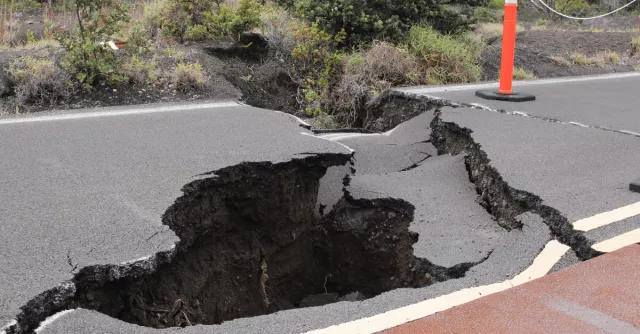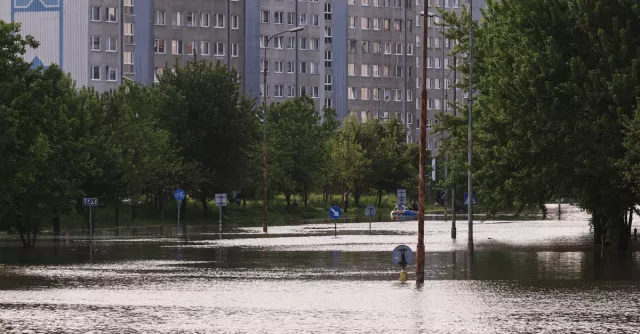Best Ways to Prepare & Keep Your Business Safe in an Earthquake

Unlike hurricanes or tornadoes, earthquakes don't occur at predictable times or in predictable patterns. Earthquakes rarely give any warning, which is why they present such a challenge to preparedness. One earthquake doesn't cause much damage, but large earthquakes can cause widespread destruction and loss of life.
Any organization's emergency plan should consider how to protect employees, assets, and business continuity. In this article, you'll learn the best ways to prepare for the unexpected and keep your business intact.
Preparing Your Company for an Earthquake
Earthquakes are one of the most significant threats to business continuity, with devastating effects on companies, employees, and customers. Earthquakes occur in remote, high-risk areas with few or no warning systems, making them nearly impossible to predict. In the aftermath of an earthquake, employees are often left without access to their offices, computers, or other critical infrastructure they need for their jobs. Moreover, disasters often disrupt transportation networks, telecommunications lines, electricity grids, and water and sewer systems, making it difficult for employees to get to work.
You can reduce the potential impact of an earthquake on your business by ensuring that you have an emergency plan and conducting regular earthquake preparedness drills. This enables you to assess your workplace's vulnerabilities and plan for potential disruptions, which can reduce the chances of injury and damage.
Establish an Emergency Plan
You should establish your company's emergency plan ahead of time. In addition to routinely training employees on what to do during an emergency, you should encourage all the key stakeholders in your company to participate in an emergency training exercise. You and the key stakeholders should also establish an alternate worksite if possible.
In a natural disaster, your employees will appreciate the level of preparation you put into a disaster plan.
Design Your Company's Emergency Plan With The Following
- In the event of an earthquake, it is essential to establish a designated emergency area outside of the workplace. Ideally, the location should be open-air and free of other buildings or power lines. Make sure that your employees are aware of the site of the designated emergency area.
- After evacuation, designate one or more individuals to conduct a roll call of employees, depending on the size of your company.
- Having teams handle basic first aid, search and rescue, fire and evacuation, damage assessment, and security is an excellent way to involve your employees in the process.
Prepare Disaster Supply Kits
You can also mitigate your employees' injury rate if you have a disaster supply kit on hand after an earthquake. During a time of any disaster, you may lack access to food, water, and information, for some time.
A disaster supply kit at your workplace needs to contain, at the very least, the following:
- Bottled water
- Hand-crank or battery-powered radio
- Additional batteries
- Emergency first aid kit
- Emergency whistle
- Local maps with information about the nearest hospital and police station
- Chargers and backup batteries (or power banks) for cell phones
- Pain relievers and other non-prescription medications
Develop a Business Continuity Plan (BCP) and an Emergency Action Plan (EAP)
Business continuity plans and emergency action plans are essential components of every business. BCPs ensure that a company's ability to respond to and recover from the unexpected is protected and minimizes downtime for the organization. Your employees need an EAP in case of an emergency to know what to do.
Getting expert assistance can be an excellent way to build a fully actionable EAP and BCP for business owners without the time or expertise to do so themselves. Peparis offers help in developing an emergency preparedness plan that keeps your company compliant, establishes safety measures, and protects your employees and company. Preparis can also help design a BCP that best suits your company's needs.
Both weather and technology failures can account for power outages. Business owners should prepare businesses to support their productivity even when faced with a power outage and consider a backup plan that includes additional computer equipment, an emergency power supply like a generator, or a portable power and connection pack like ReadyTechGo.
Storing Information Remotely
Businesses should have all critical company information, including client data, work orders, contracts, intellectual property, marketing information, and other sensitive materials, safely stored in the cloud if an unexpected disaster hits. Businesses should also have critical business data, like employee training records, sales records, and financial statements, on a remote server.
Having the valuable materials mentioned above will enable your company to do business still while handling the aftermath.
Prepare Your Employees to Deal with Emergencies with Training and an Emergency Messaging System
As a result of a natural disaster, time is essential, and you must take action immediately. A person may become overwhelmed in a moment of crisis and freeze up when they should be acting quickly. Organizations that are likely to be affected by natural disasters should prioritize preparing their employees to respond to natural disasters such as hurricanes or power outages. In addition, any company should have an emergency messaging system like Preparis Alerts in place in case of an emergency due to the chaos that follows, which also helps keep remote workers abreast of the situation.
Importance of Earthquake Awareness
Earthquakes can cause significant disruption for businesses and their employees. Employees who are knowledgeable and prepared for earthquakes are safer and less likely to become seriously injured. Companies that establish an emergency preparedness plan are more likely to recover from the aftermath of an earthquake.
Businesses should assess their vulnerabilities and develop an emergency preparedness plan that includes evacuation plans, meeting places, communication plans, and employee safety training. Contact us today to strengthen your emergency action plans.


